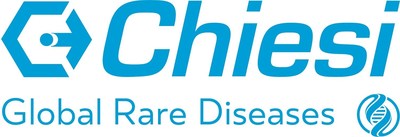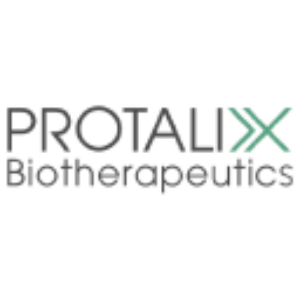Protalix BioTherapeutics Announces Completion of the Treatment Period for its Phase III BRIGHT Clinical Trial of Pegunigalsidase Alfa (PRX-102) for the Proposed Treatment of Fabry Disease
Protalix BioTherapeutics (NYSE American: PLX) has completed the treatment period of its Phase III BRIGHT clinical trial for pegunigalsidase alfa (PRX–102) aimed at treating Fabry disease. The company is finalizing the data analysis process amid COVID-19 restrictions and expects to announce top-line results in Q4 2020. This trial follows positive results from the earlier Phase III BRIDGE trial. Additionally, Protalix has filed a BLA for PRX–102 with the FDA, targeting a PDUFA date of January 27, 2021, marking significant progress in their drug development pipeline.
- Completion of the Phase III BRIGHT clinical trial for PRX–102, a step forward in Fabry disease treatment.
- Anticipation of top-line results announcement in Q4 2020.
- Successful previous results from the Phase III BRIDGE clinical trial.
- BLA submitted to the FDA with a target PDUFA date of January 27, 2021.
- Ongoing delays in data analysis due to COVID-19 restrictions.
- Risk of FDA not granting marketing approval for PRX–102 or requesting additional data.
CARMIEL, Israel,, Aug. 24, 2020 /PRNewswire/ -- Protalix BioTherapeutics, Inc. (NYSE American:PLX) (TASE:PLX), a biopharmaceutical company focused on the development, production and commercialization of recombinant therapeutic proteins produced by its proprietary ProCellEx® plant cell-based protein expression system, today announced completion of the treatment period of its Phase III BRIGHT clinical trial of pegunigalsidase alfa, or PRX–102, for the proposed treatment of Fabry disease. The Company is currently working with its service providers to complete the final monitoring visits necessary for final analysis of the data; however, many sites are still impacted by ongoing local and state restrictions and precautions due to the COVID-19 pandemic. The Company anticipates announcing top-line results in the fourth quarter of 2020 once this process is completed.
"Completion of the BRIGHT study marks another important key milestone in our pursuit of an alternative dose and regimen of pegunigalsidase alfa for the proposed treatment of Fabry disease," said Dror Bashan, President and Chief Executive Officer of Protalix BioTherapeutics. "We eagerly anticipate announcement of top-line data, and are working towards the completion of the final monitoring visits as quickly as possible. Our challenge now is to continue the work to finalize these last details with the ongoing headwinds from COVID-19. I am very proud of our team's execution in completing the study and am confident in their ability to have the final data as expeditiously as possible."
Mr. Bashan continued, "The BRIGHT study is the second Phase III study of PRX–102 in Fabry patients that we have completed as part of our comprehensive PRX–102 development program. We announced positive results earlier this year from our Phase III BRIDGE clinical trial, and we anticipate results from an interim analysis of our Phase III BALANCE clinical trial in the first half of 2021. In addition, earlier this month, we announced the filing of the PRX–102 BLA by the U.S. Food and Drug Administration with a PDUFA target date of January 27, 2021."
"Completion of the treatment period of the BRIGHT study represents another important milestone in the effort to advance this development program, and we are grateful to all of the patients and clinicians who have been dedicated to moving this program forward in spite of the challenges of COVID-19," said Giacomo Chiesi, Head of Chiesi Global Rare Diseases. "Pending regulatory approval, Chiesi is taking all steps necessary to be able to make PRX-102 available to patients as rapidly as possible."
About the Phase III BRIGHT Study
The BRIGHT study is a phase III, open label, switch over study to assess the safety, efficacy and pharmacokinetics of pegunigalsidase alfa (PRX–102) 2 mg/kg administered by intravenous infusion every four weeks for 52 weeks in patients with Fabry disease currently treated with enzyme replacement therapy (ERT): agalsidase alfa or agalsidase beta.
About Fabry Disease
Fabry disease is an X-linked inherited disease that results from deficient activity of the lysosomal α–Galactosidase–A enzyme resulting in progressive accumulation of abnormal deposits of a fatty substance called globotriaosylceramide (Gb3) in blood vessel walls throughout a person's body. Fabry disease occurs in one person per 40,000 to 60,000. People living with Fabry inherit a deficiency of the α–Galactosidase–A enzyme, which is normally responsible for the breakdown of Gb3. The abnormal storage of Gb3 increases with time, accumulating primarily in blood and in blood vessel walls. The ultimate consequences of Gb3 deposition range from episodes of pain and impaired peripheral sensation to end-organ failure – particularly of the kidneys, but also of the heart and the cerebrovascular system.
About Pegunigalsidase Alfa
Pegunigalsidase alfa (PRX–102) is an investigational, plant cell culture-expressed, and chemically modified stabilized version of the recombinant α-Galactosidase-A enzyme. Protein sub-units are covalently bound via chemical cross-linking using short PEG moieties, resulting in a molecule with unique pharmacokinetic parameters. In clinical studies, PRX–102 has been observed to have a circulatory half-life of approximately 80 hours. The Company designed PRX–102 to potentially address the continued unmet clinical need in Fabry patients.
About Chiesi Global Rare Diseases
Chiesi Global Rare Diseases is a business unit of the Chiesi Group established in February 2020 and focused on research and development of treatments for rare and ultra-rare disorders. The Global Rare Diseases unit works in collaboration with Chiesi Group to harness the full resources and capabilities of our global network to bring innovative new treatment options to people living with rare diseases, many of whom have limited or no treatments available. The unit is also a dedicated partner with global leaders in patient advocacy, research and patient care. For more information visit www.chiesiglobalrarediseases.com.
About Chiesi Group
Based in Parma, Italy, Chiesi Farmaceutici is an international research-focused healthcare group with 85 years of experience in the pharmaceutical industry and a global presence in 29 countries. Chiesi researches, develops, and markets innovative drugs in the respiratory therapeutics, specialist medicine, and rare disease areas. Its R&D organization is headquartered in Parma (Italy), and is integrated with R&D groups in France, the USA, the UK, and Sweden to advance Chiesi's pre-clinical, clinical, and registration programs. Chiesi employs nearly 6,000 people. Chiesi Group is a certified Benefit Corporation. For more information www.chiesi.com.
About Protalix BioTherapeutics, Inc.
Protalix is a biopharmaceutical company focused on the development and commercialization of recombinant therapeutic proteins expressed through its proprietary plant cell-based expression system, ProCellEx®. Protalix was the first company to gain U.S. Food and Drug Administration (FDA) approval of a protein produced through plant cell-based in suspension expression system. Protalix's unique expression system represents a new method for developing recombinant proteins in an industrial-scale manner.
Protalix's first product manufactured by ProCellEx, taliglucerase alfa, was approved for marketing by the FDA in May 2012 and, subsequently, by the regulatory authorities of other countries. Protalix has licensed to Pfizer Inc. the worldwide development and commercialization rights for taliglucerase alfa, excluding Brazil, where Protalix retains full rights.
Protalix's development pipeline consists of proprietary versions of recombinant therapeutic proteins that target established pharmaceutical markets, including the following product candidates: pegunigalsidase alfa, a modified version of the recombinant human α–Galactosidase–A protein for the proposed treatment of Fabry disease; OPRX–106, an orally-delivered anti-inflammatory treatment; alidornase alfa for the treatment of Cystic Fibrosis; and others. Protalix has partnered with Chiesi Farmaceutici S.p.A., both in the United States and outside the United States, for the development and commercialization of pegunigalsidase alfa.
Forward-Looking Statements
To the extent that statements in this press release are not strictly historical, all such statements are forward-looking, and are made pursuant to the safe-harbor provisions of the Private Securities Litigation Reform Act of 1995. The terms "expect," "anticipate," "believe," "estimate," "project," "plan," "should" and "intend," and other words or phrases of similar import are intended to identify forward-looking statements. These forward-looking statements are subject to known and unknown risks and uncertainties that may cause actual future experience and results to differ materially from the statements made. These statements are based on our current beliefs and expectations as to such future outcomes. Drug discovery and development involve a high degree of risk and the final results of a clinical trial may be different than the preliminary findings for the clinical trial. Factors that might cause material differences include, among others: that the FDA might not grant marketing approval for PRX–102 by the PDUFA date or at all and, if approved, whether PRX–102 will may have significant limitations on its use or be commercially successful; risk that the FDA will request additional data or other conditions of the Biologics License Application (BLA) filing for Accelerated Approval of PRX–102; failure or delay in the commencement or completion of our preclinical and clinical trials which may be caused by several factors, including: slower than expected rates of patient recruitment; unforeseen safety issues; determination of dosing issues; lack of effectiveness during clinical trials; inability to monitor patients adequately during or after treatment; and inability or unwillingness of medical investigators and institutional review boards to follow our clinical protocols; risks associated with the novel coronavirus disease (COVID–19) outbreak, which may adversely impact our business, preclinical studies and clinical trials; the risk that the results of the clinical trials of our product candidates will not support our claims of safety or efficacy, that our product candidates will not have the desired effects or will be associated with undesirable side effects or other unexpected characteristics; risks related to our ability to maintain and manage our relationship with any collaborator, distributor or partner; risks related to the amount and sufficiency of our cash and cash equivalents; risks relating to our ability to make scheduled payments of the principal of, to pay interest on or to refinance our outstanding notes or any other indebtedness; our dependence on performance by third party providers of services and supplies, including without limitation, clinical trial services; delays in our preparation and filing of applications for regulatory approval; delays in the approval or potential rejection of any applications we file with the FDA or other health regulatory authorities, and other risks relating to the review process; our ability to identify suitable product candidates and to complete preclinical studies of such product candidates; the inherent risks and uncertainties in developing drug platforms and products of the type we are developing; the impact of development of competing therapies and/or technologies by other companies and institutions; potential product liability risks, and risks of securing adequate levels of product liability and other necessary insurance coverage; and other factors described in our filings with the U.S. Securities and Exchange Commission. The statements in this press release are valid only as of the date hereof and we disclaim any obligation to update this information, except as may be required by law.
Investor Contact
Chuck Padala, Managing Director
LifeSci Advisors
+1-646-627-8390
chuck@lifesciadvisors.com
Media Contact
Brian Pinkston
LaVoieHealthScience
+1-857-588-3347
bpinkston@lavoiehealthscience.com
![]() View original content to download multimedia:http://www.prnewswire.com/news-releases/protalix-biotherapeutics-announces-completion-of-the-treatment-period-for-its-phase-iii-bright-clinical-trial-of-pegunigalsidase-alfa-prx-102-for-the-proposed-treatment-of-fabry-disease-301116942.html
View original content to download multimedia:http://www.prnewswire.com/news-releases/protalix-biotherapeutics-announces-completion-of-the-treatment-period-for-its-phase-iii-bright-clinical-trial-of-pegunigalsidase-alfa-prx-102-for-the-proposed-treatment-of-fabry-disease-301116942.html
SOURCE Protalix BioTherapeutics, Inc.; Chiesi
FAQ
What is the purpose of the Phase III BRIGHT clinical trial for PLX?
When are the top-line results from the BRIGHT clinical trial expected for PLX?
What are the previous results from the Phase III clinical trials for PRX–102?









